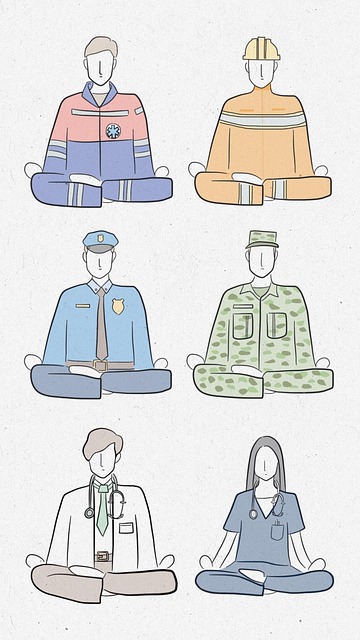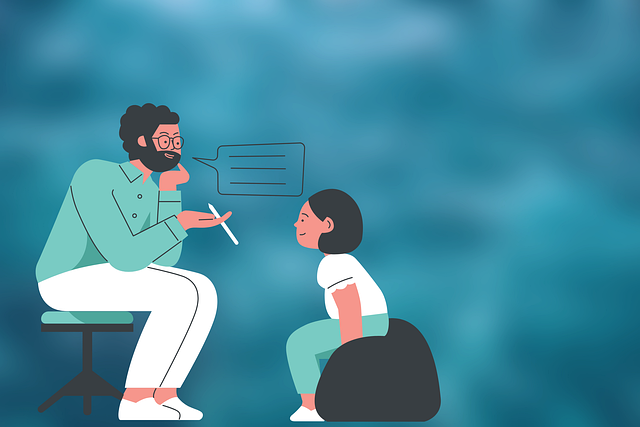Children in blended families face unique mental health challenges. Specialized programs, integrating Mind Over Matter principles, offer tailored therapy and safe spaces for emotional expression, relationship navigation, and coping mechanism development. These initiatives, coupled with comprehensive community outreach, enhance support systems, ensuring access to essential resources. By addressing specific stressors and improving family dynamics through open communication and collaborative problem-solving, these programs foster resilience, self-awareness, and long-term mental well-being for children in blended families.
Mental health among children in blended families is a growing concern, underscoring the need for specialized education programs. This article explores strategies to address this critical issue through a comprehensive approach. We delve into understanding mental health dynamics in children from blended backgrounds, identifying the unique challenges they face. The focus then shifts to designing effective therapy frameworks tailored to their needs and incorporating family dynamics into the curriculum. Additionally, we discuss implementation and evaluation methods to ensure successful outcomes for these vulnerable young individuals.
- Understanding Mental Health in Children and Blended Families
- Identifying the Need for Specialized Education Programs
- Designing an Effective Therapy Framework for Kids
- Incorporating Family Dynamics into the Curriculum
- Implementing and Evaluating the Success of the Program
Understanding Mental Health in Children and Blended Families

Mental health issues among children in blended families have become an increasingly important area of focus, as these households present unique challenges and opportunities for fostering healthy development. Children growing up in blended families may experience a range of emotions due to the integration of new family members, step-parents, and potential changes in routines. Understanding their mental well-being requires a nuanced approach that acknowledges these complexities.
Implementing therapy for children in blended families is a strategic move towards burnout prevention and promoting positive thinking. Specialized programs can address the specific needs of these kids by providing safe spaces to express their feelings, navigate relationships, and develop coping mechanisms. A comprehensive community outreach program implementation can further enhance support systems, ensuring that both children and parents have access to necessary resources.
Identifying the Need for Specialized Education Programs

In today’s complex social landscape, there’s a growing recognition of the unique challenges faced by children navigating blended families. These situations, where biological and step-parents co-parent, often introduce emotional complexities that can impact a child’s mental well-being. As such, there’s an urgent need for specialized mental health education programs design tailored to this demographic, going beyond traditional therapy for children.
Integrating Mind Over Matter principles into these programs offers a proactive approach to depression prevention. By teaching children coping mechanisms, emotional regulation strategies, and fostering self-awareness from an early age, mental health education programs design can empower them to build resilience against the unique stressors they may encounter in blended family settings. This holistic approach ensures that not only are immediate concerns addressed but also that children develop lifelong tools for mental well-being.
Designing an Effective Therapy Framework for Kids

Designing a therapy framework for kids within blended families requires a nuanced approach that caters to their unique needs. These young individuals often face complex emotional landscapes, having experienced multiple households and relationships. Therefore, the therapy should be structured to foster a sense of stability and security while promoting positive coping mechanisms. By integrating Mind Over Matter principles, therapists can empower children to understand and manage their emotions effectively. This involves teaching them resilience-building strategies and self-care practices tailored to their age group.
A holistic approach that considers the family dynamic is essential. Therapy sessions can be designed to include parents or caregivers, focusing on improving communication and strengthening the parent-child bond. This collaborative effort not only supports the child’s therapy but also equips families with tools to navigate challenges together. The goal is to create a safe space where children feel heard, valued, and supported in their emotional journeys.
Incorporating Family Dynamics into the Curriculum

Incorporating family dynamics into mental health education programs is a vital step towards fostering holistic well-being, especially within blended families. Many children in these households face unique challenges related to adjusting to new living arrangements and managing complex relationships. Therapy for Children in Blended Families should address these issues by providing a safe space to explore and understand familial bonds, communication patterns, and potential conflicts. This approach empowers young individuals to navigate their emotions and develop coping mechanisms, ultimately leading to better anxiety relief and emotional healing processes.
By integrating family-centric activities and discussions, mental health educators can facilitate open conversations about the impact of blended family dynamics on a child’s psyche. Stress management workshops designed with these families in mind can offer valuable tools for effective communication and conflict resolution, promoting a supportive environment. Such initiatives enable children to process their feelings, strengthen familial connections, and learn adaptive strategies for managing stress, fostering resilience within the organization.
Implementing and Evaluating the Success of the Program

Implementing a mental health education program for children in blended families requires careful planning and evaluation to ensure its success. The initial phase involves assessing the unique needs of this population, considering factors such as past traumatic experiences and adjustment issues that may arise from the transition between households. Tailoring the curriculum to address these specific challenges is crucial in fostering effective therapy for children. Incorporating strategies like cognitive-behavioural techniques and trauma support services can help kids build resilience and positive thinking skills, which are essential for their emotional well-being.
Regular evaluation metrics should be established to gauge the program’s impact on participants’ mental health. This includes measuring improvements in self-esteem, coping mechanisms, and overall inner strength development. By collecting feedback from both children and caregivers, educators can identify areas of success as well as potential gaps in the program design. These insights enable continuous improvement, ensuring that the mental health education initiative effectively supports the emotional growth and adjustment of children in blended families.
Mental health education programs tailored for children in blended families are essential to addressing unique challenges. By incorporating insights from various sections, including understanding mental health dynamics in this population, designing effective therapy frameworks, and integrating family dynamics into the curriculum, we can create powerful interventions. Such programs have the potential to foster resilience, improve family relationships, and enhance overall well-being for children navigating complex familial structures. With careful implementation and evaluation, these initiatives can revolutionize support systems for kids in blended families, offering them much-needed therapy and guidance.









